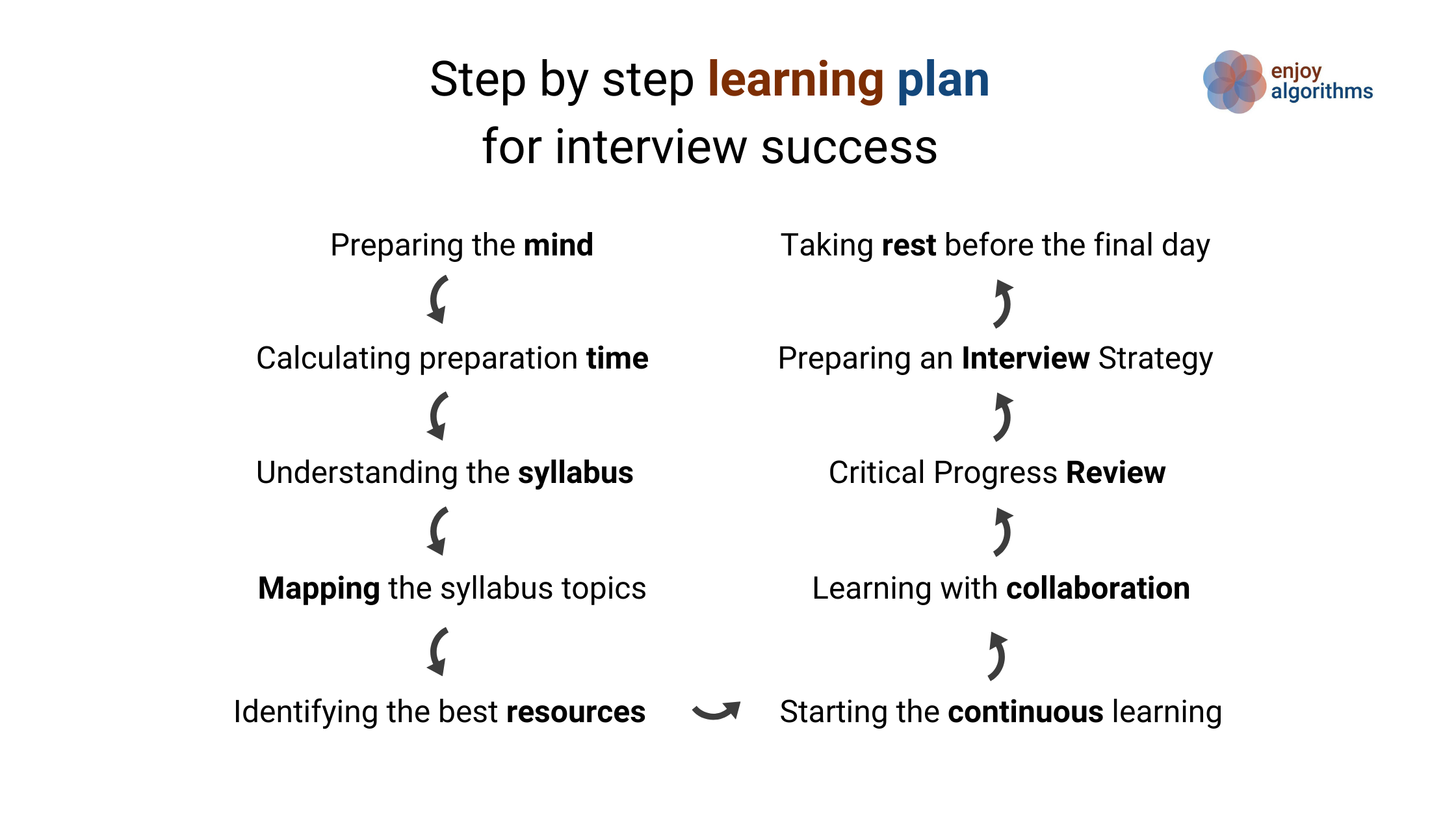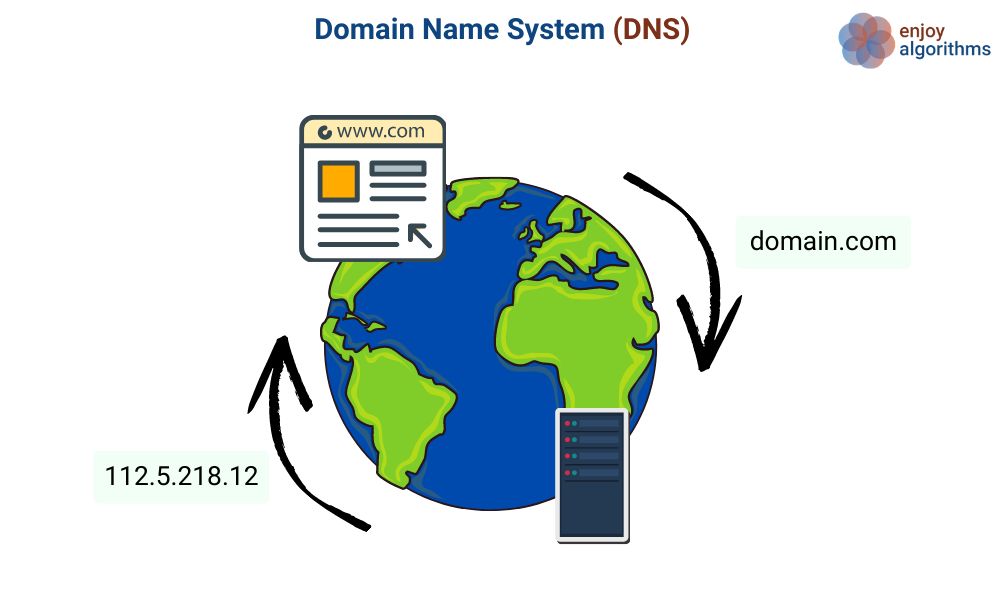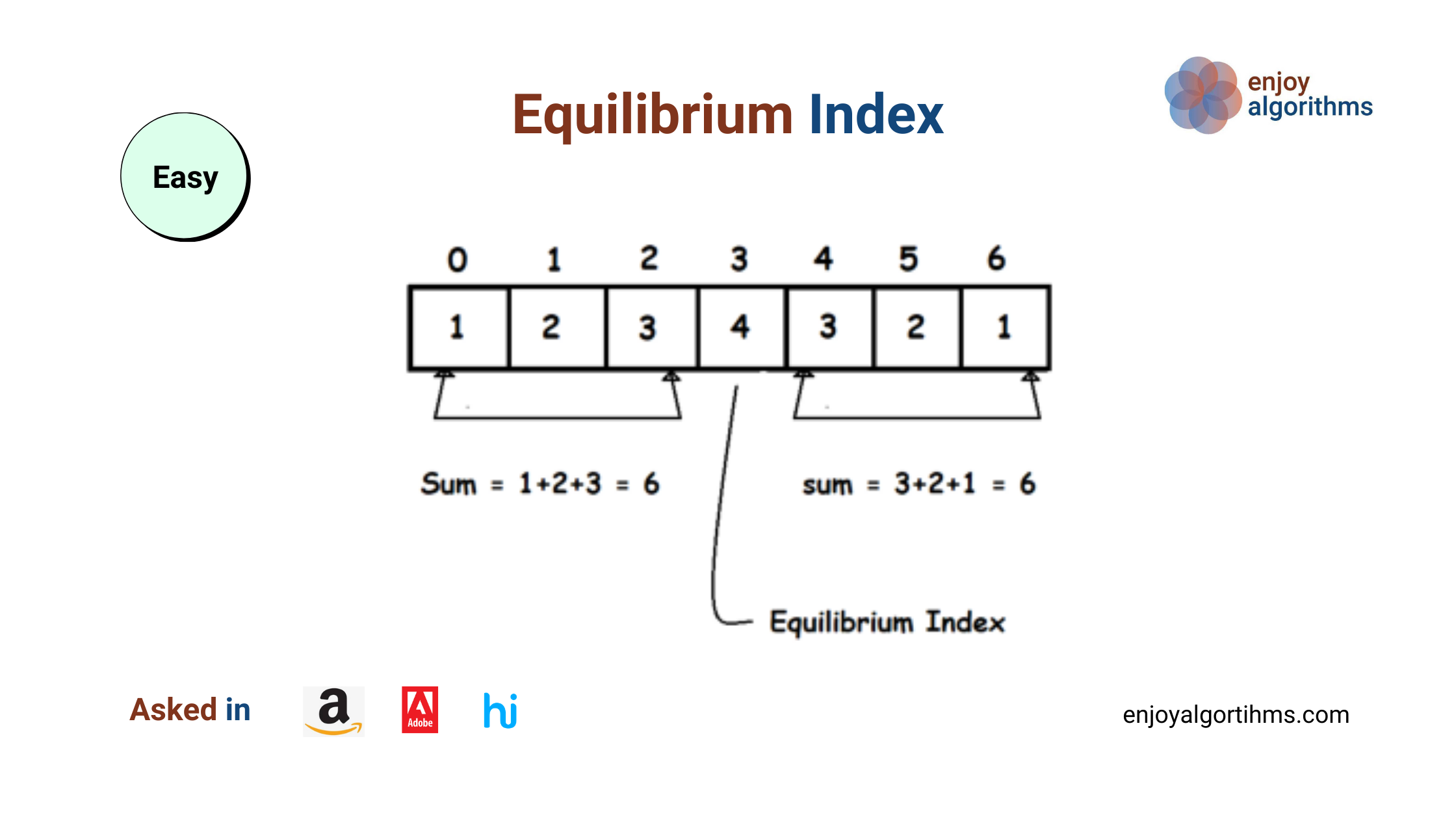
AlphaFold, an AI program of Google's DeepMind, solved the mystery of "How proteins fold into 3D shapes?". It was a mystery question for the past 5…

Let's discuss something important: how to prepare a learning plan to achieve interview success? Sharing here a step-by-step guided strategy:
The first step would be to develop a long term desire to achieve the target. We should think - why I want to accomplish this? How will it change life in the long run?
Suppose we have 6 months' available duration with a commitment of 5 hours/daily. Then the total time = 30 x 6 x 5 = 900 Hours. Let's do the round-off and say, we have 1000 preparation hours in 6 months. Similarly, we have 2000 preparation hours in 1 year or 500 preparation hours in 3 months. This will help us to customize the preparation strategy based on our needs.
Now prepare a list of the syllabus topics relevant for the exam or interview. Our goal must be to cover at least 80% syllabus.
Divide the syllabus into independent topics and allocate a good chunk of time from the above calculated time. Also, map and prioritise the topics based on the strength and weaknesses. A topic that requires more time should get more time.
Do critical research to collect useful learning resources - books, blogs, talks, pdf, reports, courses, etc. Internet could be highly useful for this activity. We should follow the authentic sources and organize them according to the syllabus.
Now pick the topics according to the priority order. If we have allocated 75 hours for any topic then our aim should be to learn the important concepts, solve fundamental and advanced problems that have been asked during exams or interviews. Keep doing the 6th step for the remaining topics. One more thing - Never forget to prepare a good self note, which could help in doing fast revision later.
A good collaborative environment can work as a catalyst. So try to build a group of 2-3 people who have similar goals and schedule a discussion on each topic. We should work as a mentor or observer for each other and help to bridge the gap of strength and weaknesses. If there are some experienced person who has already achieved that success, then try to on-board him/her as a mentor.
After completing each topic at a given time, doing a critical review could help us to understand the progress. We should answer these questions - what is the further scope of improvement in the topic? What are the most important concepts to keep in mind? What is the current level of our problem-solving ability? I would suggest making a note and rate each topic on a scale of 1 to 10.
It is a key stage where we need to analyse the different interview scenarios and note down the ideas which could help us to perform better. We should prepare a unique strategy for the initial 15-30 minutes to gain confidence. The best idea would be - learn from the mistakes and push forward to perform best in the defined time. Here are some important interview tips :
It is essential because we want our minds to be in the best state on the day of interview. Take adequate rest, eat good food, play games, have a fun talk with friends. Make your schedule to arrive 10 to 15 minutes early
Finally, develop a belief that this is not an end, just one great attempt. A burning desire, hard work, and consistency are the keys. Always remember this quote: "If the mind is weak then the situation becomes a problem, if the mind is balanced then the situation becomes a challenge. But if the mind is strong then the situation becomes an opportunity."
If you have any questions or queries, we would love to hear that in the comment. Enjoy learning, Enjoy thinking, Enjoy coding!

AlphaFold, an AI program of Google's DeepMind, solved the mystery of "How proteins fold into 3D shapes?". It was a mystery question for the past 5…

Thirty years ago, when the Internet was still in its infancy when you wanted to visit a website you had to know the IP address of that site. That’s…

Difficulty Level Easy Asked In Amazon, Adobe, Hike Three solutions Discussed Brute force approach — Using two nested loops Using extra space — Using…
Subscribe to get free weekly content on DSA, Machine Learning and System Design. Content will be delivered every Monday.